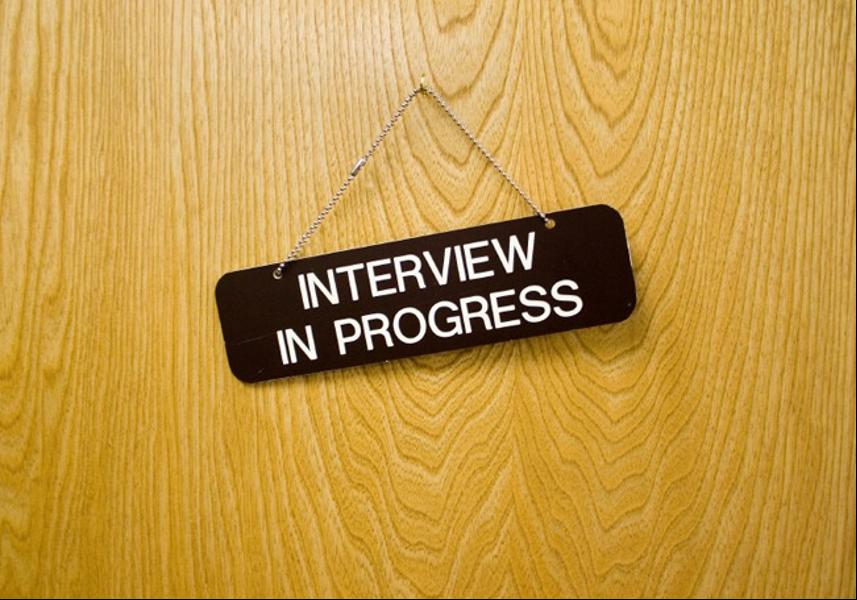
 The PR world has been radically transformed by the Information Age, yet it may be an industry that will never be changed by technology when it comes to the importance of making a good face-to-face impression. Even if that day eventually comes to pass, we are far from the point where confidence, poise and know-how are not highly valued by those hiring for PR positions, so the in-person interview is still a crucial test. While it's hard to alter your persona, the best aspects of yourself will shine brighter if your mind is focused, which is where preparedness comes in.
The PR world has been radically transformed by the Information Age, yet it may be an industry that will never be changed by technology when it comes to the importance of making a good face-to-face impression. Even if that day eventually comes to pass, we are far from the point where confidence, poise and know-how are not highly valued by those hiring for PR positions, so the in-person interview is still a crucial test. While it's hard to alter your persona, the best aspects of yourself will shine brighter if your mind is focused, which is where preparedness comes in.
1. Research the agency or brand. You'd be surprised at how many people go into interviews without knowing as much as possible about the job they're applying for (which doesn't indicate that they are serious about wanting the job). What is the history of the company? What are its biggest accounts? What kind of work does it specialize in? What are some specific campaigns it has spearheaded? This information will probably all be on the agency's or company's website (if they know what they're doing), but you can go deeper.
Check Google News for items about the company. Read its social media accounts, plus the CEO's Twitter, plus the Twitter of your interviewer. Learn what your interviewer looks like via their picture on Twitter or LinkedIn; you may be entering a room with more than one person, and it's good to know who's who to minimize confusion.
Does the company have a YouTube channel? Has the CEO done any speaking engagements, and if so, what was the topic? Is there a recording of it so that you can better understand the CEO's philosophy? Lastly, is there anything you haven't learned from all this research? Write it down, because interviewers always want you to ask questions.
2. Bring supplies. Number one: a notepad and pen, for both referring to notes from your earlier research and taking notes during the interview. Aside from being helpful per se, this conveys seriousness, preparedness and organization. Number two: more copies of your resume than you think you'll need. Again, preparedness. Panel interviews are popular these days, and if there are people sitting in on the interview who forgot to print out copies, you're the person with a solution.
3. Be ready for a test. If the position involves writing and editing, a test may be administered that involves both. If you're a little rusty, it couldn't hurt to practice by writing a paragraph or two on a topic of your choice, with emphasis on clarity, brisk and precise language, and correct grammar. In the Internet age, there's plenty of available material on which you can practice your editing skills. Simply find a low-traffic amateur blog and set to work. Some companies also give an SAT-style multiple-choice test with questions involving basic logic, mathematics and grammar. It probably won't do a world of good to try to study for this, but being mentally prepared for the possibility will help you handle it with aplomb.
4. Look at the interview through the interviewer's eyes. What is he or she looking for in you, and what questions might be asked to ascertain whether you have those qualities? This may be dependent on the specific position you are interviewing for, but for starters, consider these 5 Questions to Ask PR Job Candidates. Thinking about your answers to them will positively inform your frame of mind for the interview even if those specific questions don't come up.
Follow Ian Wright: @ianwright0101

Speaking as a “PR pro turned PR prof” who has made every single one of these mistakes at some point in his past…great advice that every single job seeker should memorize!
Speaking as a “PR pro turned PR prof” who has made every single one of these mistakes at some point in his past…great advice that every single job seeker should memorize!
Good advice, but don’t become an automaton. Don’t overplay things by scripting yourself too tightly, then find yourself in a place you don’t like or is not a good fit. Most important, describe to the interviewer — without being arrogant — what you will bring to the job that adds value to the employer’s business. They want to know what you can do for them, not the other way around. Don’t take any job; take the job that will make the best use of your skills and experience.